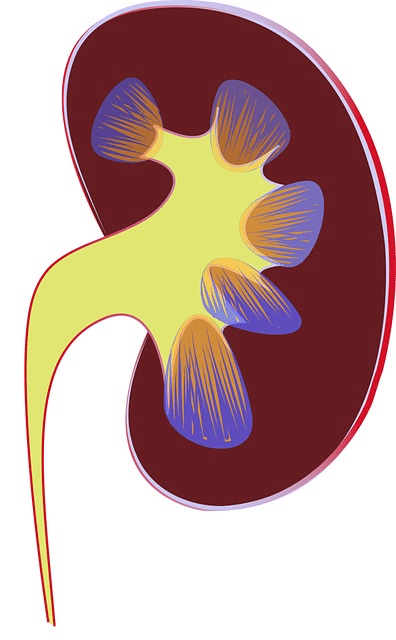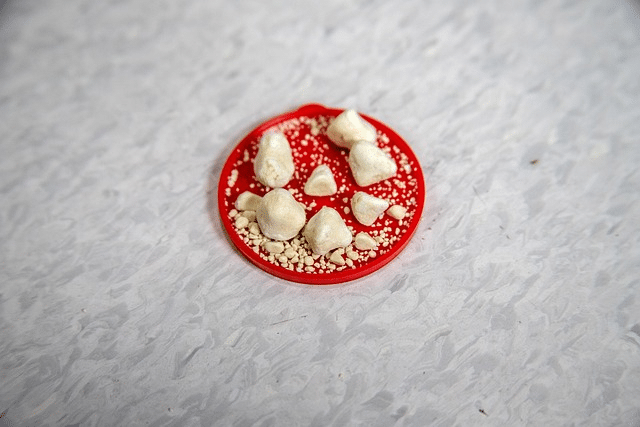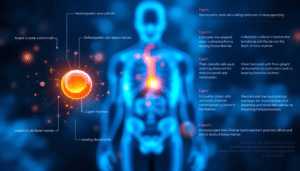Millions of men and women worldwide experience a detrimental impact on the quality of life from a variety of urologic diseases. Eliminating urologic dysfunction in conditions from urinary incontinence to overactive bladder has always been challenging. Current gold-standard therapies still often provide only temporary symptomatic relief without addressing the underlying cause of disease development.
What is Urological Disease?
Urological diseases are medical conditions that affect the urinary tract and male reproductive system. The urinary tract includes organs such as the kidneys, bladder, ureters, and urethra, while the male reproductive system involves structures like the testes, prostate, and penis. Urological diseases can affect individuals of all ages and may have various causes, including infections, congenital abnormalities, aging, and lifestyle factors.
Urologic Diseases and Stem Cell Research

Both overactive bladder and underactive detrusor have been reported to have improved outcomes in preclinical studies with local injections of adipose derived stem cells. Urologic diseases or conditions include urinary tract infections, kidney stones, bladder control problems, and prostate problems, among others.
Human embryonic stem cells derived from 4–5-day-old human embryos. They have high proliferative capability and can differentiate into ectoderm, mesoderm or endoderm. Metabolic memory has been hypothesed as a reason for suboptimal results—diseased bladder cells harvested for the production autologous mesenchymal stem cells may produce thick walled poorly compliant tissue. Embryonic stem cell lines derived from human blastocysts.
The last types are adult mesenchymal stem cells; derived from hematopoietic and mesenchymal tissues (fat, muscle, skin, brain, etc.). However, in vitro tissue engineering using mesenchymal stem cells seeded on a scaffold or synthetic matrix, which were later implanted in diseased bladders has shown promise, developing characteristics similar to native bladders.
In erectile dysfunction, it is reported that significant improvement in erectile function after injection of fat derived stem cells. Combination stem cell therapy with a mixture of autologous stem cell types is also advertised. The future Despite challenges, stem cell therapy remains an exciting field. The ability of stem cells to repair diseased tissue is proven.
Local versus intravenous injections of skeletal muscle precursor cells in nonhuman primates with acute or chronic intrinsic urinary sphincter deficiency. Proposed mechanisms of action include cell contact, paracrine signaling systems, neovascularization, and differentiation to a particular cell type. These cells secrete growth factors and cytokines, which may aid function. In a significant breakthrough, we can induce adult differentiated cells to behave like pluripotent stem cells.
Emerging Role of Stem Cell Therapy in Urology

Stem cell therapy is increasingly recognized for its transformative potential in reshaping the treatment landscape for urological diseases, encompassing conditions affecting the urinary tract and male reproductive system.
Within this evolving field, various stem cell types, including embryonic, adult, induced pluripotent, and amniotic fluid stem cells, are subjects of exploration due to their distinct regenerative attributes. Notably, investigations into the potential of stem cell therapy for erectile dysfunction are underway, with a focus on its capacity to contribute to the repair and regeneration of erectile tissue, offering promising prospects for enhanced treatment outcomes.
Moreover, stem cell therapy is emerging as a potential solution for urinary incontinence by fostering the regeneration of urethral and bladder tissues. Clinical studies are actively exploring the efficacy of stem cell interventions for kidney diseases, capitalizing on the regenerative potential and anti-inflammatory effects exhibited by these cells.
The mechanisms underpinning stem cell action in urological diseases involve their differentiation into specific cell types relevant to the affected tissues. Additionally, the release of growth factors and cytokines by stem cells plays a pivotal role in creating a regenerative environment conducive to the repair of damaged urological structures.
Paracrine effects of stem cells further contribute to the healing process by fostering a regenerative milieu. Stem cells also exhibit immune-modulating properties, influencing immune responses within the context of urological diseases and facilitating a more favorable environment for healing.
Despite these promising advancements, the application of stem cell therapy in urology faces challenges, including ethical considerations, safety concerns, and regulatory obstacles that necessitate thorough consideration. Ongoing research and clinical trials are actively shaping the emerging role of stem cell therapy in urology, with a dedicated focus on refining treatment protocols, ensuring long-term efficacy, and expanding the spectrum of effectively treatable conditions through regenerative medicine.
RECENT STUDIES IN UROLOGICAL DISEASES

In recent studies, the usage of allograft stem cells to halt disease progression and reverse underlying pathology has shown promise in restoring normal function for various urologic diseases. Allograft stem cells may be useful in treating a variety of urologic conditions due to their ability for multilineage cell differentiation and self-renewal. This can give allograft stem cells with proper application regenerative properties assisting in processes like tissue repair.
Allograft stem cell injections may also have a therapeutic effect via the secretion of bioactive factors that direct other allograft stem and progenitor cells (biological cells with the ability to differentiate like allograft stem cells) to the area of injury.
All tests have yielded successful outcomes for the condition of stress urinary incontinence, for example, when caused by mechanical, nerve, or external urethral sphincter injury. Similarly, tests have been successful in showing an improvement in allograft stem cell-treated bladder overactivity.
Current evidence is accruing to suggest that allograft stem cell therapy holds great promise in treating other conditions such as PD, erectile dysfunction, and urothelial tissue engineering. If urological disease is something for which you are seeking alternative treatments, a doctor can help you decide if allograft stem cell therapy is right for you.
Reports suggest that mesenchymal stem cells injected into the bladder reduce hypoxia, markers of inflammation with remodeling of collagen in rat models.
Benefits of Stem Cells in Cases of Urological Disease

The application of stem cells in the context of urological diseases holds several potential benefits, showing promise in addressing various conditions within the urinary tract and male reproductive system. Here are some key benefits associated with the use of stem cells in urological diseases:
Tissue Regeneration
Stem cells possess the unique ability to differentiate into different cell types, promoting tissue regeneration. In urology, this capability is particularly valuable for repairing damaged tissues in organs such as the bladder, kidneys, and erectile tissues.
Treatment for Erectile Dysfunction
Stem cells are being investigated for their potential in treating erectile dysfunction by contributing to the regeneration of erectile tissues. This could offer an alternative or complementary approach to conventional treatments.
Urinary Incontinence Management
Stem cell therapy holds promise for managing urinary incontinence by facilitating the regeneration of urethral and bladder tissues. This approach aims to address the underlying causes of incontinence and improve overall bladder function.
Renal Regeneration
In kidney diseases, stem cells may play a crucial role in renal regeneration. The potential to repair damaged nephrons and modulate inflammation offers hope for novel treatments for various kidney disorders.
Minimally Invasive Procedures
Stem cell therapy can often be administered through minimally invasive procedures, reducing the need for extensive surgeries. This can lead to faster recovery times and reduced complications for patients.
Induced pluripotent stem cells
Adult somatic cells can be reverted to pluripotent stem cells by the introduction of certain transcription factors. They are similar to embryonic stem cells in terms of morphology and differential potential.
Paracrine Effects
Stem cells release growth factors and cytokines, known as paracrine effects, which create a regenerative environment. This contributes to tissue repair and supports the overall healing process in urological structures.
Immune Modulation

Stem cells exhibit immune-modulating properties, helping to regulate immune responses. In urological diseases, this can be beneficial in managing inflammatory conditions and creating a more conducive environment for healing.
Personalized Medicine
Stem cell therapies have the potential for customization based on an individual’s specific condition. This personalized approach can enhance the effectiveness of treatment and improve outcomes.
Reduced Dependency on Medications
Successful implementation of stem cell therapy may lead to a reduction in the long-term dependency on medications for managing certain urological conditions, providing a more sustainable and holistic treatment approach.
Ongoing Research and Innovation
The field of stem cell therapy in urology is dynamic, with ongoing research and innovation. This constant exploration may lead to further breakthroughs, expanding the scope of conditions that can be effectively addressed through regenerative medicine.
While the field is still evolving, these potential benefits highlight the significant promise of stem cell therapy in transforming the treatment landscape for urological diseases. Continued research and clinical trials are essential to further validate these benefits and refine the application of stem cells in urology.
WE’RE HERE TO HELP YOU & YOUR FAMILY

Stem Cells LA offers helpful information to interested patients about stem cell treatments for arthritis, neuropathy, orthopedic disease, anti-aging, and more. Additionally, the restorative properties of stem cell treatments may help reduce healing time for other procedures.
At Stem Cells LA, we’re happy to provide informational services. It’s important to look into the patient experience. Your safety, privacy, and well-being are of the utmost importance to us. Remember, we’re here for you!
Above all, only a qualified doctor can help you decide if stem cell therapy is right for you. We may be able to help set you up with a trusted regenerative medicine specialist. To book a consultation, call us today.
Stem Cells LA
(310) 281-6160 1970 S. Prospect Ave., Suite 2
Cited Sources:
National Center for Biotechnology Information
https://www.ncbi.nlm.nih.gov/pmc/articles/PMC4294800/
National Center for Biotechnology Information
https://www.ncbi.nlm.nih.gov/pubmed/26243575


